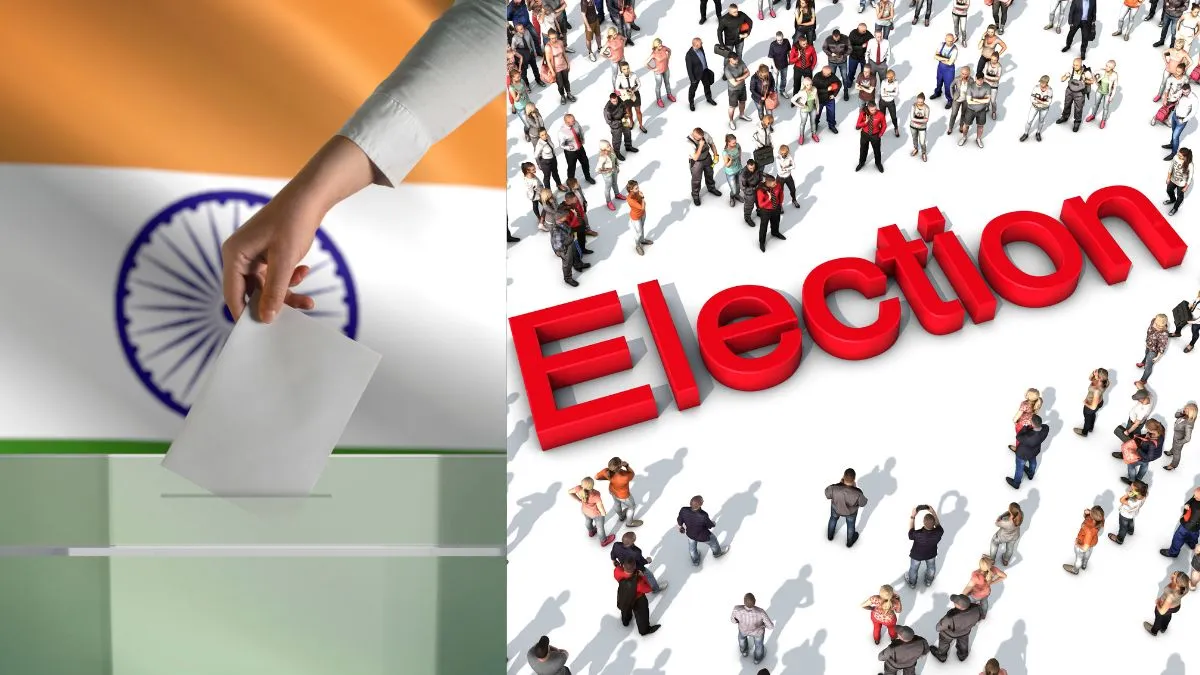- By Aditi Priya Singh
- Wed, 13 Aug 2025 05:53 PM (IST)
- Source:JND
30+ Important Election Terms You Must Know: Elections are some of the most important events in India, the largest democracy in the world. Voters get to choose their leaders every few years. However, during election season, we often hear many specific terms like "voter turnout," "model code of conduct," and "constituency." These aren't just fancy words; they play a crucial role in how elections are planned and carried out. Understanding these terms helps every citizen grasp the process, the laws and their rights.
The Election Commission of India manages elections and follows strict guidelines to guarantee fair and transparent voting. Each stage, from setting dates to counting votes, has its own importance. Knowing these terms helps you become a more informed and responsible citizen, no matter how long you have been voting. Let's look at some important election-related terms and their definitions in simple English.
| No. | Election Term | Meaning (Easy Language) |
|---|---|---|
| 1 | Election Commission of India (ECI) | The independent body that conducts and monitors elections in India. |
| 2 | Voter ID | An identity card is issued to eligible voters to prove they can vote. |
| 3 | Electoral Roll | The official list of all people eligible to vote in an area. |
| 4 | Constituency | A specific area whose people elect one representative. |
| 5 | Candidate | A person contesting in the election to get votes. |
| 6 | Political Party | An organised group of people with similar political ideas. |
| 7 | Ballot Paper | A paper listing candidates where voters mark their choice (now mostly replaced by EVMs). |
| 8 | EVM (Electronic Voting Machine) | A machine used to record votes electronically. |
| 9 | VVPAT | A device that shows a paper slip of your vote for verification. |
| 10 | Model Code of Conduct | Rules for political parties and candidates during elections. |
| 11 | Campaign | Activities done by candidates to ask people for votes. |
| 12 | Manifesto | A document showing a political party’s promises and plans. |
| 13 | Nomination | The process by which a candidate’s name is officially entered for elections. |
| 14 | Scrutiny | Checking the nomination papers for validity. |
| 15 | Withdrawal | When a candidate decides not to contest after filing a nomination. |
| 16 | Polling Booth | The place where voters go to cast their vote. |
| 17 | Polling Day | The official date when voting happens. |
| 18 | Booth Level Officer (BLO) | An officer who helps manage voters’ lists in a polling area. |
| 19 | Counting Centre | The place where votes are counted. |
| 20 | Vote Share | The percentage of votes received by a candidate or party. |
| 21 | Voter Turnout | The percentage of registered voters who vote. |
| 22 | Exit Poll | A survey was done after the voting to predict the election results. |
| 23 | Opinion Poll | A survey was done before voting to know people’s choices. |
| 24 | By-Election | An election is held when a seat becomes vacant before the term ends. |
| 25 | General Election | Elections are held across the country to choose MPs or MLAs. |
| 26 | Rajya Sabha Election | Election for members of the Upper House of Parliament. |
| 27 | Lok Sabha Election | Election for members of the Lower House of Parliament. |
| 28 | Delimitation | Redrawing the boundaries of constituencies. |
| 29 | Reserved Constituency | A constituency reserved for SC/ST candidates. |
| 30 | First-Past-The-Post System | The candidate with the highest votes wins, even if not a majority. |
| 31 | NOTA (None of the Above) | An option to reject all candidates. |
| 32 | Postal Ballot | Voting is done by post for people who cannot vote in person. |
| 33 | Election Observer | An official appointed to ensure fair elections. |
| 34 | Election Petition | A legal complaint challenging the result. |
| 35 | Recounting | Counting votes again when there’s a dispute or close result. |

